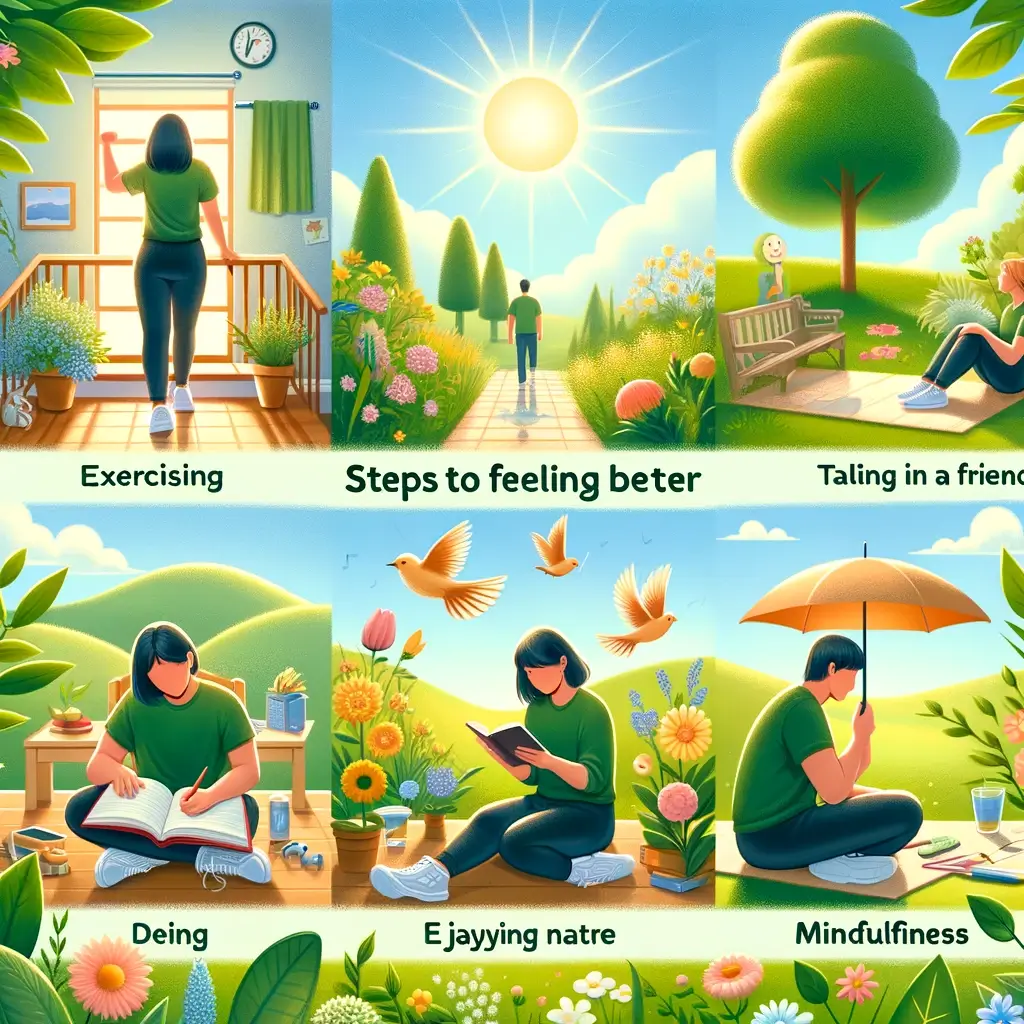5 Steps to Feel Better When You’re Feeling Down
This article outlines five ways that can help you reduce stress, shift your perspective, and reconnect with optimism. They’re not a magic fix—but each one offers a nudge in the right direction. The key is to take action. Even one small change can shift how you feel. Your emotions are valid—but your reaction is always your choice.
Step One: Back to Childhood
Think of how children approach life. They’re curious, adventurous, and open to new experiences. As adults, we often lose that openness. Try reintroducing:
- Variety – Get curious again.
- Diversity – Seek new perspectives.
- Experimentation – Try something creative or playful.
Children embrace change. They get excited. Adults often fear it. Reflect on your own reactions and try channeling that childlike energy instead.
Step Two: Deal with Stress – Know the Difference
Some stress is helpful—it keeps us sharp. But too much becomes overwhelming. Recognize when you’re crossing that line. Warning signs include emotional outbursts, avoidance, and disinterest.
According to the American Psychological Association, chronic stress can contribute to anxiety, depression, and physical illness (APA, 2023).
Regaining Control
- Do something that takes your mind off the stressor—physically or mentally.
- Set boundaries. Speak up respectfully.
- Focus on what you can control—and let go of what you can’t.
- Pay attention to your personal stress signals.
- Tackle issues early. Don’t let them pile up.
One trainer shared a story about a workshop participant who reintroduced daily drawing into her routine after 15 years. It helped her unwind after work and sleep better within a week.
Step Three: Get a Fresh Perspective
Boredom and burnout often come from mental patterns—not just the job itself. Reframe the situation:
- Drudgery? Look for moments of creativity.
- Avoiding responsibility? Try stepping up.
- Low energy? Focus on purpose, not tasks.
Step Four: Be More Flexible
Reactions are automatic. Responses are intentional. Flexibility means pausing, considering your options, and choosing the response that aligns with your goals.
8-Step Flexibility Plan
- Notice your triggers.
- Pause when you start to react.
- Remind yourself that you have options.
- Visualize the outcome you want.
- Pick a response that supports that outcome.
- Act.
- Observe the results.
- Adjust if needed.
Step Five: Motivate Yourself
Desire moves you forward—but inertia, fear, and doubt hold you back. Overcome inertia by focusing on what energizes you. Try this simple table to reframe unpleasant tasks:
| Things I Enjoy Doing | Things I Have to Do But Don’t Enjoy | Ways I Could Enjoy Completing These Tasks |
|---|---|---|
Beliefs That Can Shift Your Mood
Try these beliefs on for size and see how they change your emotional landscape:
- Every challenge holds a lesson.
- You can take responsibility without self-blame.
- Health and happiness are your natural state.
- Mind and body are connected. Change one to change the other.
- Change is constant—resist it and suffer, or embrace it and grow.
- If what you’re doing isn’t working, try something else.
- You see more of whatever you focus on. Choose wisely.
- There is no failure, only feedback.
- Your inner resources are enough. Trust them.
- Success takes commitment. Define it for yourself.
Helpful Self-Reflection Questions
- How can I most easily let go of the past?
- What must I do to create a happy and inspiring future?
- What must I do to remember to let go of less-than-useful feelings?
- What else do I need to do to develop these skills?
How We Use This in Training
This article is part of our resilience-building and emotional regulation modules. Participants explore personal triggers and apply simple tools like reframing, perspective shifting, and belief auditing. One practical next step is taking the Emotional Intelligence Self-Assessment to build awareness of how thoughts and emotions shape behavior.














































































